Discouraging June unemployment numbers help to frame the contentious debt ceiling negotiations. A look at GOP presidential hopefuls and their fundraising, and the White House changes course on acknowledging suicides in the military.
Full Episode: July 8, 2011
Nov. 03, 2014 AT 4:41 p.m. EST
TRANSCRIPT
Notice: Transcripts are machine and human generated and lightly edited for accuracy. They may contain errors.
MS. IFILL
: Troubling job news, deficit talks at a critical stage, GOP money numbers and how to honor troubled soldiers, tonight on “Washington Week.”
PRES. BARACK OBAMA
: Our economy as a whole just isn’t producing nearly enough jobs for everybody who’s looking.
MS. IFILL
: The unemployment rate creeps higher as the economic slowdown stays slow. How will that effect this weekend’s high-stakes debt negotiations?
REP. JOHN BOEHNER (R-OH) [Speaker of the House]
: There is no agreement in private or in public.
MS. IFILL
: All eyes are on the numbers, both in Washington and on the campaign trail –
JON HUNTSMAN [Presidential Candidate]
: This was a must-hit opportunity for us.
MS. IFILL
: – as GOP presidential candidates seek targets of opportunity.
MITT ROMNEY [Presidential Candidate]
: The president in my view made the recession deeper and longer than it needed to be.
MS. IFILL
: And a change in White House policy – what happens when a soldier commits suicide? Covering the week: Greg Ip of the Economist, Alexis Simendinger of Real Clear Politics, Jeanne Cummings of Bloomberg News, and Yochi Dreazen of National Journal.
ANNOUNCER
: Award winning reporting and analysis, covering history as it happens, live from our nation’s capital this is “Washington Week with Gwen Ifill,” produced in association with National Journal.
(Station announcements.)
ANNOUNCER
: Once again, live from Washington, moderator Gwen Ifill.
MS. IFILL
: Good evening. Just when economists were beginning to predict light at the end of the tunnel, the monthly job numbers said, no, not yet. And just like that the White House was on the defensive again.
PRES. OBAMA
: We’ve added more than two million new private sector jobs over the past 16 months. But the recession cost us more than eight million. And that means that we still have a big hole to fill.
MS. IFILL
: Greg, who is in that big hole and why it is that month after month after month it never seems to get more shallow?
MR. IP
: So let’s go back a little ways. A few months ago the economy seemed to be having a nice head of steam. We were seeing very strong job growth numbers of 200,000 per months. And suddenly everything seemed to hit a wall.
We basically had a run of really bad luck. We have very bad snow storms earlier this year. We had a series of natural disasters here. The big hit came from gasoline prices that shot up to around $4 a gallon because of the Libyan rebellion. And then finally the Japanese earthquake and tsunami turned out to be a much bigger negative for us than we may have appreciated because it cut off the flow of vital parts. You put all those things together and it cost a lot of momentum. And so May we saw very poor job numbers, and then in June, again very poor job numbers.
It was kind of a surprise because in fact over the last few weeks we’d had a kind of wave of optimism because some of those temporary negatives seemed to be going away as gasoline prices dropped and Japan got back to normal.
MS. IFILL
: Twenty-four hours ago I heard all the smart economists saying, we think we’ll get 120,000 jobs and instead it was 18(,000). What was the big gap – what was the distinction?
MR. IP
: Well, first of all, these numbers are always very hard to forecast. Every month when these numbers come out there’s a lot of crystal ball gazers eating a lot of broken glass. And it was worse this time than usual because just the day before a very respected private forecast had said there would be 170,000 private sector jobs roughly created this month. That turned to be three times too high.
But step back a little bit, and I think the really interesting phenomenon here is that these disappointments aren’t restricted just to the last month or two. They keep happening. The recovery supposedly turned two on July 1
st
and it really – you know, we’ve had disappointment after disappointment. The Federal Reserve keeps lowering their forecast. There seems to be something more structurally wrong going on in the economy than any of us appreciated.
MS. CUMMINGS
: Greg, they’re talking about different ways – the White House today was talking about remedies to this. The president mentioned passing trade deals and patent reform. And they could get those things through Congress. But short term, is that going to make any difference?
MR. IP
: No. I mean, those are good things to do – patent reform, getting the free trade agreement passed, and those things probably will pass once a few sort of negotiating items are cleared up. But those will produce rounding error in terms of the impact on jobs. Really the only real impact they could have would be more stimulus, but all they’re talking about right now is cutting the deficit, not expanding it. There is a possibility that they might extend the payroll tax cut that we had a year ago for another year. But really, all that does is prevent the restraint from the fiscal side getting worse. It doesn’t actually add new oomph to the economy.
MS. SIMENDINGER
: Greg, you mentioned the Fed – Federal Reserve. There’s been lots of discussion since this morning about whether there are anymore tools in the toolkit for the Federal Reserve.
MR. IP
: Yes.
MS. SIMENDINGER
: So what do you think is out there in discussion land?
MR. IP
: You know, ordinarily, they would be like cutting interest rates right now to deal with these very bad job numbers, but their regular interest rates are near zero. They’ve had two programs of unconventional policy of basically purchasing bonds by printing money. But they’re not very excited by the prospect of doing more. Inflation has got to be a bit more of a problem because of those higher gasoline prices. And there’s almost a lack of faith inside the Fed that it will work. But I actually think that if these job numbers don’t pick up, as most of us actually think they will, you will see the Fed perhaps swing into action.
MR. DREAZEN
: How much of what we’re seeing in these bad numbers is a reflection of, as you alluded to in your last answer, the bad things that have happened, the tsunami in Japan, some of the other natural disasters, and how much of this are people just being scared of what’s yet to happen, in particular is the possibility of the U.S. defaulting on its debt?
MR. IP
: I think the temporary factors are the most important thing. I don’t think there’s a lot of evidence that the discussion of the debt talks are creating a lot of uncertainty. I mean, look at bond yields. There’s still only around 3 percent. There’s no concern in the bond market that we can see.
The tough reality is we have a situation where all the households who took on too much debt during the boom years are trying to pay that debt down. Now we have folks in Washington saying the government must do the same. If you combine households paying down debt with the government trying to like rein in debt, that’s sort of a double whammy to the economy.
MS. IFILL
: Who’s taking the hit in this? I see numbers that show that African-Americans are taking a harder hit, that women are taking a harder hit. How demographically – I guess let’s get back to the real people question, how these numbers or this disappointment, this disappointingly slow recovery – how is it affecting people’s lives?
MR. IP
: Well, the rise in unemployment that’s now taken place over the last three or four months has been across the board in terms of demographic groups, racial and age related. But there are two very interesting trends that come out.
The first is the private sector has actually continued to create jobs, about 130,000 in the last months. It’s government that keeps cutting, cutting, cutting, eight months in a row. And we’re going to get more of that. You know, the standoff that’s going on in Minnesota right now pretty much guarantees there will be more austerity there.
The other interesting trend is that women are getting hurt more than men. Now, that’s kind of unusual because in recoveries it’s usually the other way around, women doing better. That might in fact reflect the fact that a lot of job losses are in government, especially local government.
MS. IFILL
: Okay. Well, thank you. Women taking the hit again. We’ve heard this before.
While the job numbers put a significant damper on those accelerated efforts to reach a debt ceiling agreement, only yesterday the president was saying there was progress in sight. House Speaker Boehner pegged the chance of getting a deal within 48 hours at 50/50. But that was yesterday. That was before the bad job numbers. This was Boehner today.
REP. BOEHNER
: We need serious reforms that restrain future spending. You’ve heard me say it before: A debt limit increase that raises taxes or fails to make serious spending cuts won’t pass the House.
MS. IFILL
: So where do the negotiations stand tonight, Alexis?
MS. SIMENDINGER
: Standing still tonight actually, trying to get organized for the Sunday discussion. They’re getting back together in the evening on Sunday.
MS. IFILL
: Who is that?
MS. SIMENDINGER
: And that would be the leaders, the eight leaders representing the House and the Senate in both parties, the president and the vice president and the president’s staff. They’re going to get back together in the evening on Sunday, having brought their homework and their number two pencils and the White House said not their sleeping bags and their pillows but you never know at 6:00 p.m.
And trying to actually get down to brass tacks about what kind of pieces of the budget everyone could live with that might add up between $2 trillion and $4 trillion of deficit reduction over 10 years. And this discussion is all designed in the rush to avert the debt ceiling crisis, the default concept by or before August 2
nd
.
MS. IFILL
: Now, there was some suspicion yesterday when they were being kind of sort of optimistic that in fact Speaker Boehner and President Obama in the secret meetings that we didn’t at first hear about at the White House had cut the broad outlines of a deal and they were just in the selling part where they were going in trying to count noses. Was that hopelessly optimistic?
MS. SIMENDINGER
: John Boehner, the speaker, and the president are the two most enthusiastic champions of the idea of going for the big deal. And both of them have political incentives that they’re considering that would be helpful to them.
For one, the president has a weak hand. He’s trying to figure out how to get out of a political box. He loves the idea of thinking long for history. John Boehner is trying to think of how he can keep his speakership and how he can organize a deal that he actually would believe in, that he can get his members to vote for and that they could then still run on in 2012. So the two of them are the enthusiasts for this.
And so when you see them starting to look like it’s wilting today, it’s because they just both on their party sides heard all kinds of grief. Nancy Pelosi came to visit the president this morning. She made no bones yesterday about how upset she was that she was sort of cut out of these discussions with the speaker and that the Democrats in the House are concerned the president might sell them out on Medicare and Social Security, which are suddenly on the table. The president refuses to take these very important programs to Democrats off the table.
MS. IFILL
: She says they should be at a different table.
MS. SIMENDINGER
: Right. And she is concerned that the president is dealing with the speaker on Republican terms – that the Republicans don’t want to raise taxes, that perhaps John Boehner is playing the president for a deal where the Republicans have a much stronger political hand at this point.
MS. CUMMINGS
: But John Boehner doesn’t have a free ride on this one either. And how much concern is there, because we were hearing a fair amount of this of concern from Republicans in mid-week that John Boehner was going to agree to tax increases or close tax loopholes, that the –
MS. IFILL
: Revenue I believe is the euphemism.
MS. CUMMINGS
: Yes. Positive revenue is what the White House says. So not revenue neutral is what the White House was insisting upon. And, of course, that got anti-tax activists on the Republican base side quite riled up. How has Boehner managed that and how much of a hurdle is that for him?
MS. SIMENDINGER
: Well, he has said consistently, publicly that he supports his conference, that they will not agree to any tax increases. But just on the day when the president saw that on the Hill Republicans were starting to fracture on the idea of they could go for some loopholes, Eric Cantor, the majority leader on the House Republican side said, well, he can see some loophole closures. Jon Kyl, the senator from Arizona, said he could see some selling of government property; those things are not considered tax increases.
On that particular day the White House was thinking, okay. This is going well. And just on that day, what happens? Then the Democrats go nuts over the publicity around the idea that Social Security and Medicare may be on the table. And Nancy Pelosi starts to suggest that her conference will walk.
So just when there seemed to be on one side, as you say – but by going big, the president believes negotiating big, the $4 trillion, that you might end up in a good negotiating mode, like any contract, you go big to go middle.
MS. IFILL
: Or you go big or you go home.
MS. SIMENDINGER
: Or you go home, exactly.
MR. DREAZEN
: You mentioned a moment ago that the debate to some Democrats was taking place on Republican terms. Here in Washington it’s all about cut the debt, cut spending, cut the debt, cut spending. When you look at the polls though, that doesn’t seem to rank very high. People seem to like social services. They like Social Security, Medicaid, Medicare. Is this an issue that is sort of Beltway focused or do you actually see concern when you look outside Washington about the same issue?
MS. SIMENDINGER
: Well, conservatives were very concerned about government spending and the size of government. So the whole concept of trying to trim the government and bring down spending, that was much more of a Republican initiative. And that certainly was a feature of the elections last November. So you could argue that that came from the outside, inside – the tea party, et cetera.
But the concept of jobs and the economy is really what’s driving most Americans to think about what should happen in Washington. And the president’s trying to say if we eat our peas now, we’ll have the dessert later. This is good for the economy. We need to do this.
MS. IFILL
: Everybody likes eating peas.
MS. SIMENDINGER
: No. Not so much. No. And he talks about (pain ?) quite candidly. So the public says, no. I like Medicare. Don’t mess with my Medicare. Don’t mess with my Social Security. But they like some features of the idea of shrinking government, of spending less, of trying to get a hold of our deficit.
MS. IFILL
: Well, there is no group who is keeping a closer eye on the ups and downs in Washington than the Republicans running for president. The trouble is to win the White House, they have to raise the money first. And the numbers don’t look so great, far short of where even some of the same candidates were four years ago. Mitt Romney is still the leader in the money race. Where is everybody else, Jeanne?
MS. CUMMINGS
: Everybody else is barely in the race. These numbers really were shocking considering what we are used to in terms of people raising money for presidential campaigns. And it was a wake-up call I think for the Republicans and many of the fundraisers out there who are sitting on the sidelines. These were sobering numbers.
Basically, the three frontrunners for the Republican nomination in 2007 in their first report – that would be Rudy Giuliani, Mitt Romney and John McCain – they’d raised a combined $53 million in their first set of reports. This group has raised maybe around $33 million. So they’re $20 million off the mark, off pace from the last cycle. Now, they intentionally started late.
MS. IFILL
: And the three you’re talking about, just to be clear, is Mitt Romney, and Ron Paul, the libertarian candidate, and who’s number three?
MS. CUMMINGS
: Number three would be Tim Pawlenty. But Ron Paul raised $4.5 million. That’s a very good number for Ron Paul. He’s a long shot, Texas congressman, great libertarian following online. But Tim Pawlenty, the former governor of Minnesota, raised less than that – $4.2 million. That number was a real surprise because he’d been working very hard to raise money. A lot of time in May was locked away behind closed doors. And so Mitt Romney is at $18.3 million, way ahead of Pawlenty, who was supposed to be the alternative to Romney.
MS. SIMENDINGER
: Jeanne, what’s the importance of these reports? If you’re not a hardcore politico type and you’re really watching these closely, what does it tell you?
MS. CUMMINGS
: Well, first of all, these in the past in typical elections, they use these first reports to show strength, to gain momentum. And so there’s always somebody who’s going to come out on top. People knew Romney would probably be that guy, even though he came in still $4 million less than what he raised in just 2007. But he is ahead.
But Pawlenty and the others – this is a breakaway moment. If Pawlenty had had a really strong number, then the thinking would have coalesced around the idea of, okay, it’s coming down to a choice – Romney, Pawlenty. Who’s the alternative to Romney? That’s what Huntsman and Pawlenty and the other candidates in the race are fighting for – that number two position. Right now nobody’s got it which is a wide open lane for Michele Bachmann who is a fast fundraiser and a very good fundraiser.
MR. IP
: Jeanne, the Republicans are trying to put a positive spin on this and are saying, well, you know, a lot of the reason fundraising has been slow is that the nominating contest itself has been slow, kind of got off to a late start. Well, the obvious implication then is, are things going to turn around in the third quarter? Are we actually going to see the momentum shift? What do you think?
MS. CUMMINGS
: Well, that’s where I think in hindsight they will realize they may have miscalculated. They did intentionally start late. None of them announced until April and May. And what they expected to do in that period then was to come out with some really good healthy numbers, which most of them have not accomplished.
So now they go into the third quarter. This is known as a real tough quarter because it’s summer. And people aren’t around, they don’t attend events, it’s hard to get in touch with people. The third quarter is a very tough quarter for raising money. And then the fourth quarter is even harder because you’re in Iowa and you’re in New Hampshire.
And so they’ve really I think in hindsight may not repeat this. They may start in January when everybody’s at home, snowbound, and ready to write a check.
MR. DREAZEN
: There’s been so much about this being the first $2 billion election that Barack Obama himself might raise $1 billion. What do we know about his fundraising? What do we know about whether the support he had in 2008 is going to be there again for him regardless of who he faces?
MS. CUMMINGS
: It is true that we don’t know many numbers because these are not the official reports. These are announcements from the campaigns so we don’t know Michele Bachmann’s numbers.
MS. IFILL
: And we don’t know what they’re spending on.
MS. CUMMINGS
: Exactly. We don’t know how in debt they might be, except Newt Gingrich admitted he’s $1 million in debt.
But the White House has – or the president’s campaign has not announced his number. They have announced what their goal had been, which was $60 million to be split between the DNC and the president’s reelection campaign. I think that you’ll see that they come in with a very, very strong number, which will be a problem, a new problem for those Republicans who have not raised a lot of cash.
MS. IFILL
: And they have said how many small donors they’ve had?
MS. CUMMINGS
: They did. They did note that they had I think it was almost 500,000 small donors. And so that was their signal that their base is coming back. They are getting those activists back.
MS. IFILL
: Okay. Thanks, Jeanne.
Finally tonight, the sad story of what happens to American soldiers when they decide to take their own lives in wartime. Until this week, those service men and women did not receive one of the basic acknowledgements of their sacrifice – a letter of condolence from the president. Why the policy the policy and why the change, Yochi?
MR. DREAZEN
: You know, it’s been one of the most painful issues in the military. And the reason why the policy had been in place was a sort of fundamental divide between who said that taking your own life was a sign of weakness, that it was a sign that somewhere along the way you had failed, the person who took their own life had failed, that psychological wounds like PTSD and depression weren’t real wounds in the way that losing an arm to an IED, being shot through the leg, you know, a visible physical wound, that those were different.
And what we’re seeing because of the Iraq war and the Afghan war is that those views are now shifting, that there’s a realization that invisible wounds, mental wounds, psychological wounds are just as debilitating in some cases, more debilitating than losing an arm, than losing a leg.
MS. IFILL
: What is it about these wars that’s different from other wars in changing people’s opinions about that?
MR. DREAZEN
: Part of it is the sheer number of tours. You have people going three, four, five, six times to these war zones. In part it’s the nature of the war itself. In World War II, you had big battles where the guys to your left and to the right of you were shooting at enemies. It was more of a conventional fight.
In Iraq and Afghanistan you could be walking, as has been the case some of the times where I’ve been there, and a person who’s a friend of yours just suddenly disappears in an IED. And you never see the enemy who took his life. It’s a very different kind of challenge because you are constantly afraid of something bad happening and you never know who the person is who’s doing that bad thing to you or the person you care about.
MS. SIMENDINGER
: Yochi, does the policy change affect benefits in a way that needed some deep thought and some study and was there debate about that?
MR. DREAZEN
: There has been debate, but the policy in terms of benefits has been for the last couple of years to treat them equally, that a service member who takes his own life, the death benefits that his family gets are the same as if he had been blown up in Baghdad. The military funeral is the same with the folded flag, the same 21-gun salute. All of that had been the same.
What changes though is within the culture of the military. What changes gradually is no longer seeing someone who takes their own life as weak, no longer seeing them as a failure, seeing them instead as someone who suffered grievously from the war and saw that suffering manifest in a very different way than, again, than a physical wound might have been.
MR. IP
: Yochi, we keep hearing that what is driving so many of our servicemen to suicide is that they keep getting sent back to Iraq and Afghanistan for tour after tour. Is that true? I mean, how much do we know about what is driving these suicides?
MR. DREAZEN
: What’s fascinating is that roughly a third of the suicides had never deployed. And it’s worth putting the numbers in perspective in part because each of these numbers is a person obviously with family, with kids, with parents, with spouses.
There have been more than 1,000 troops who have taken their own lives since 2001, which is astounding. In 2008, the suicide rate in the military for the first time ever passed the suicide rate in the civilian world. Never happened before. Each year breaks the previous year’s record. So 2009 was 242 suicides; 2010, 301; this year we’re on pace to be well above that. And what we’re discovering is there are three things that seem to be driving it.
One is the deployments. The other is, again, the nature of the war – IEDs, where a friend of yours disappears. And the third – and I suspect this will in time come to be seen as the most important – the medication of troops. Troops are deploying with Xanax, with Cymbalta, with every possible kind of psychiatric medication and they’re taking them in tremendous dosages because they’re self-medicating. So if you’re supposed to take, let’s say, three pills of Xanax, they’re taking nine, 12, 15, then they come back to the States addicted in some ways to these drugs and suddenly they can’t get them anymore. And I think that issue, this question of medicating troops will come to be seen in hindsight as having been the biggest, single driver in this tragedy.
MS. CUMMINGS
: Do you think when we’re ready now to start bringing more and more of these soldiers home and getting out of these wars, so if they come home, will rates go down?
MR. DREAZEN
: In some ways I fear it’s going to be the opposite. Suicide is one of the issues where historically it’s been 20 years after war ends, 30 years after war ends that you see a spike from the people who fought in that war.
In the Vietnam era there was a lieutenant – his last name was Puller. He lost both of his legs and both of his hands. He was a Marine officer. He wrote an incredible book called “Fortunate Son” which won the Pulitzer Prize for non-fiction. His father had been a World War II hero, the most decorated Marine in World War II, Chesty Puller. And this man who lost his legs and lost his arms survived for decades, wrote a Pulitzer Prize winning book, gave speeches about how he survived. Then in 1994 he killed himself.
So, unfortunately, this is the kind of thing where when these wars end, the suffering and the wounds don’t end and the suicides that result from the suffering of those wounds will be with us for a long time.
MS. IFILL
: Well, Yochi, thank you. That is – the president called it emotional, painful, and complicated. I think we see this week why.
Thanks everybody. Our conversation has to end here but it continues online on the “Washington Week Webcast Extra,” where we’ll talk about more politics and more policy. You can find us at pbs.org. While you’re there, be sure to check out our “Washington Week” summer reading list. There’s a lot of good stuff there from everybody at this table. Keep up with daily developments with me online and on the air at the PBS “NewsHour.” And we’ll catch up again here next week on “Washington Week.” Good night.
FROM THIS EPISODE


Full Episode: March 18, 2011
President Obama and the U.N. warn Moammar Gadhafi to stop military action against rebels or face consequences. Meanwhile, after the earthquake, tsunami and partial nuclear plant meltdown in Japan, the U.S. reviews nuclear safety and a look at the global economic impact of the disaster. Joining Gwen, Tom Gjelten, NPR, Coral Davenport, National Journal, and David Wessel, Wall Street Journal.


Full Episode: April 1, 2011
Encouraging new unemployment figures arrive as Congress debates the budget and tries to avoid a government shutdown. Also, the U.S. hands over some military control in Libya to NATO. Plus, the panel looks at the 2012 GOP hopefuls. Joining Gwen Ifill: Yochi Dreazen, National Journal; Greg Ip, The Economist; Naftali Bendavid, The Wall Street Journal; and Karen Tumulty, The Washington Post.

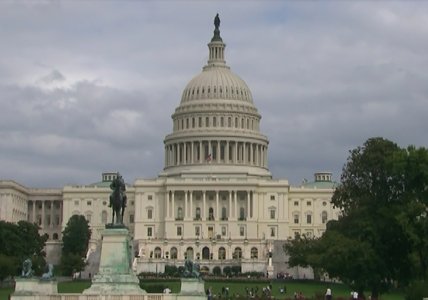
Full Episode: April 8, 2011
With a $39 billion spending cut agreed upon, the possibility of a government shutdown is finally over. The panel discusses why leaders of neither side wanted a shutdown in the first place, and how their constituents may feel. Joining Gwen Ifill: John Dickerson, Slate Magazine/CBS News; Michael Duffy, TIME Magazine; and Jeanne Cummings, Politico.

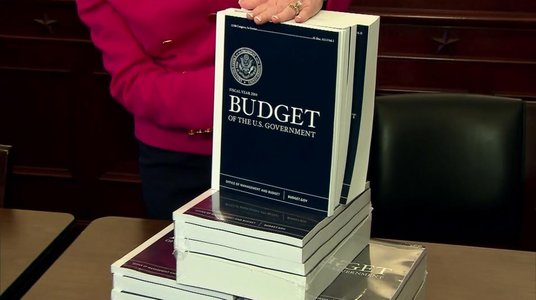
Full Episode: April 15, 2011
While President Obama and Rep. Paul Ryan both unveiled plans to cut $4 trillion from the national debt they continue to argue over how to do it. The GOP and Democrats continued to fight over America's deficit, from taxes to overhauling Medicare and Medicaid. This week: Susan Davis, National Journal; Jeff Zeleny, New York Times; Janet Hook, Wall Street Journal; John Harwood, CNBC/NY Times.

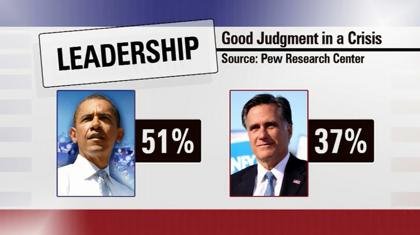
Full Episode: April 22, 2011
With gas prices on the rise, an S&P report lowering America's credit outlook, continuing debate over the deficit and a stalemate in Libya, President Obama's approval numbers have declined just at the moment he launched his reelection campaign. Joining Gwen tonight: David Wessel/Wall Street Journal; Coral Davenport/National Journal; Dan Balz/Washington Post and Martha Raddatz/ABC News.


Full Episode: May 6, 2011
After U.S. forces kill Osama bin Laden, America rejoices but the war on terror continues. The panel looks at the intelligence that led to bin Laden, the political and national security impact, and the strained US-Pakistan relationship. Joining guest host, Gloria Borger: James Kitfield, National Journal, Tom Gjelten, NPR, Peter Baker, New York Times, and Charles Babington, AP.


Full Episode: May 13, 2011
The impact of Osama bin Laden's death continues to ripple, straining the U.S.'s relationship with Pakistan. After a bump in the polls, Obama returns to domestic policy while the GOP presidential field adds a few more candidates. Joining Gwen: David Sanger, New York Times; Nancy Youssef, McClatchy Newspapers; John Dickerson, Slate/CBS News; Dan Balz, Washington Post.

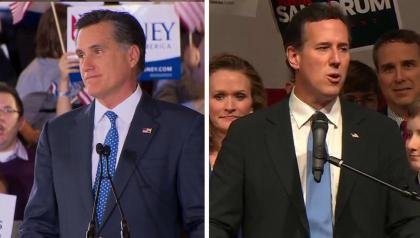
Full Episode: May 20, 2011
After infighting between New Gingrich and fellow republicans, the panel examines the current field of GOP candidates. Also, the table reports on campaign fundraising efforts, the scandal rocking the IMF, and the President's clash with Israel's PM on the path to peace in the Mideast. Joining Gwen: Jeanne Cummings/POLITICO, Michael Duffy/TIME, Doyle McManus/Los Angeles Times, Eamon Javers/CNBC.


Full Episode: June 10, 2011
As his top staff resigns, Newt Gingrich's presidential ambitions seem to falter while Democrats distance themselves from Rep. Anthony Weiner after he confessed to sexually explicit online activity. Also, a report on the future of Afghanistan as U.S. troops get set to withdraw. Joining Gwen: James Kitfield, National Journal; John Dickerson, Slate/CBS News; and Karen Tumulty, Washington Post.


Full Episode: June 17, 2011
Analysis of the 2nd GOP Presidential debate, and a new fact check feature 'Just the Facts.' Plus, details of VP Biden's negotiations on raising the debt ceiling. Also, the Pentagon and Defense Dept post-Robert Gates & controversy over the US involvement in Libya. Joining Gwen: Michael Duffy, Time; Nancy Youssef, McClatchy Newspapers; Dan Balz, Washington Post; and Jim Barnes, National Journal.


Full Episode: June 24, 2011
President Obama's announcement to begin drawing down U.S. troops from Afghanistan and what it means; the impact on class action suits because of the Supreme Court's Wal-Mart decision; and the latest on the growing GOP presidential field. Joining Gwen: Martha Raddatz, ABC News; Doyle McManus, Los Angeles Times; Nia-Malika Henderson, Washington Post; and Pete Williams, NBC News.

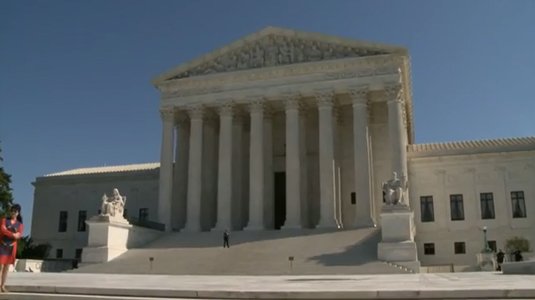
Full Episode: July 1, 2011
What will the global economic implications be if Congress does not raise the nation's $14.3 trillion debt limit? Also, Bachmann launched her presidential campaign. Plus, SCOTUS' ruling on the sale of violent video games to children. Joining Pete Williams: David Wessel of The Wall Street Journal; Major Garrett of National Journal; Jeff Zeleny of The New York Times; and Joan Biskupic of USA Today


Full Episode: July 15, 2011
President Obama predicts economic "Armageddon" if the debt ceiling isn't raised by the Aug 2 deadline. Democrats want tax hikes. Republicans want spending cuts. Gwen Ifill drills down on the facts & fiction surrounding the budget crisis with Michael Duffy, TIME Magazine; Gloria Borger, CNN; John Dickerson, Slate Magazine/CBS News; David Wessel, The Wall Street Journal.


Full Episode: July 29, 2011
Lawmakers prepare to work through the weekend to reach a debt deal and avoid a U.S. default. What will it take to break the stalemate and how would a default impact Americans? Plus, how Obama, Boehner, and Reid have played it so far. Joining Gwen Ifill: Major Garrett, National Journal; Jeanne Cummings, Bloomberg News; David Wessel, The Wall Street Journal; and Karen Tumulty, The Washington Post.


Full Episode: August 5, 2011
The economy is the worst it's been in years. Why and how did we get to this point? Also, with all the infighting in Washington these past 3-months, how did the debt deal come together and how will it effect the 2012 elections? Also, voter confidence and its impact on the polls. With Michael Duffy, Time; Deborah Solomon, The Wall Street Journal; and Charles Babington, Associated Press.


Full Episode: August 12, 2011
Gwen Ifill reports from Iowa on the 2nd Republican primary debate and the Ames Straw Poll. Joined by Dan Balz, The Washington Post, they look at the testy exchanges on the debate stage. Plus, in the Washington Week studio, Judy Woodruff examines the White House's response to recent troublesome economic news with John Harwood of CNBC/The New York Times and Jackie Calmes, The New York Times.


Full Episode: September 16, 2011
President Obama took his jobs plan straight to voters this week amidst a bounty of bad news including a jump in unemployment benefit applications, and a spike in the number of people living in poverty. And analysis of the Tea Party debate. Joining Gwen Ifill: John Dickerson of Slate/CBS News, Beth Reinhard of National Journal, Charles Babington of AP, Michael Fletcher of The Washington Post.

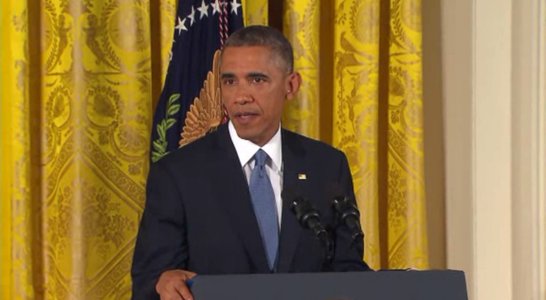
Full Episode: September 23, 2011
President Obama unveils his deficit reduction plan, with new taxes and spending cuts. Plus, Congress argues over disaster relief and a possible government shutdown. Also, Palestinians appeal for full membership at the UN. And the GOP presidential candidates debate.

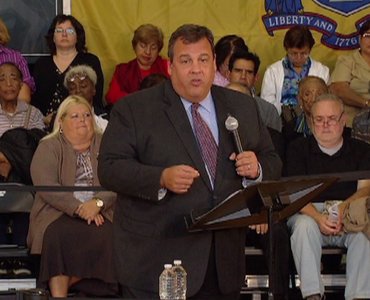
Full Episode: September 30, 2011
Airstrikes killed Anwar al-Awlaki, a U.S.-born Al-Qaeda leader in Yemen. At home, dissatisfied GOP voters want Gov. Chris Christie to join the presidential race. Also, President Obama feuds with his base. Plus, a stopgap bill temporarily prevents a government shutdown. Joining Gwen: John Dickerson, Slate/CBS News; Sam Youngman, The Hill; Major Garrett, National Journal; Pierre Thomas, ABC News.

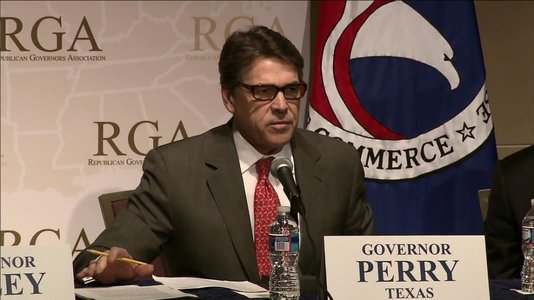
Full Episode: October 14, 2011
As the GOP candidates debate economics, President Obama promotes his jobs plan. But with its defeat in the Senate, what's next? Also, the strange story of an assassination plot against a Saudi Ambassador involving Iran and a Mexican drug cartel. Joining Gwen: Karen Tumulty, Washington Post; Michael Duffy, TIME; Alexis Simendinger, RealClearPolitics; James Kitfield, National Journal.

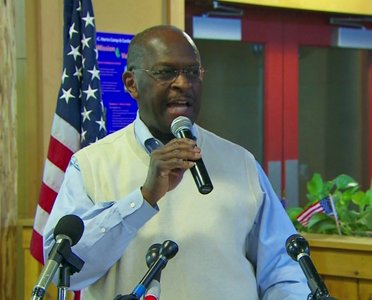
Full Episode: October 28, 2011
A long shot a short time ago, Herman Cain is shaking up the GOP race. But rising polls numbers brings greater scrutiny. And what happened to Rick Perry's surge? Also, the President tries to bypass Congress. Plus the clock is ticking on the Deficit Reduction Committee. Joining Gwen: John Dickerson, Slate/CBS News; John Harwood, CNBC/NY Times; Jackie Calmes, NY Times; Janet Hook, Wall St. Journal.


Full Episode: November 4, 2011
Alleged harassment scandals continue to dog Republican presidential frontrunner Herman Cain, as the other GOP candidates consider how to handle the controversy. Plus a discussion on the global economy, Greece, the G20 meetings, and new U.S. job numbers. Joining Gwen: John Harris, Politico; Chuck Babington, Associated Press; Alexis Simendinger, RealClearPolitics; Jim Tankersley, National Journal.

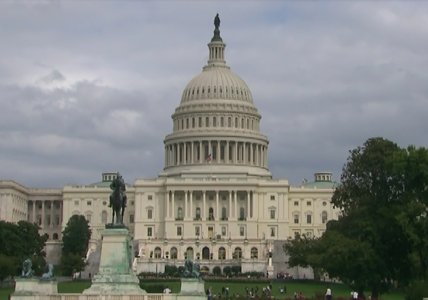
Full Episode: November 18, 2011
As the GOP candidates debated foreign policy, President Obama met with Asia-Pacific leaders. Newt Gingrich's bumpy climb in the polls. And, what happens if the Super Committee fails to deliver? Plus, SCOTUS to decide constitutionality of health reform. Joining Gwen: Major Garrett, National Journal; Jeanne Cummings, Bloomberg News; Lori Montgomery, The Washington Post; Joan Biskupic, USA TODAY.


Full Episode: December 23, 2011
This week, we look back at 2011 and forward to 2012. We'll analyze battles between Congress and the President, the economy, the killing of Osama bin Laden, the pullout of US troops in Iraq while fighting continues in Afghanistan, and more. Joining Gwen: Helene Cooper, New York Times; Michael Duffy, Time Magazine; Doyle McManus, Los Angeles Times; David Wessel, Wall Street Journal.


Full Episode: December 30, 2011
Four days before the Iowa Caucuses, Mitt Romney and Ron Paul lead, but Rick Santorum may surprise come voting day. Plus, how will Congressional retirements affect Democrats' efforts to retain control of the Senate in 2012? Joining Gwen from Iowa: Karen Tumulty, The Washington Post; Jeff Zeleny, The New York Times. Around the table: Christina Bellatoni, CQ Roll Call; Susan Davis, USA Today.

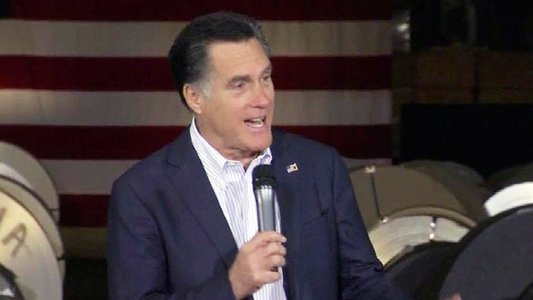
Full Episode: Januuary 6, 2012
This week, we're on the ground in Manchester, New Hampshire to preview the primaries. After a close finish in Iowa, will Mitt Romney stay ahead of the pack in the Granite State? Joining Gwen: Dan Balz, Washington Post; John Dickerson, Slate Magazine and CBS News; Julianna Goldman, Bloomberg News; John Harwood, CNBC and The New York Times.


Full Episode: January 13, 2012
Will Mitt Romney's momentum from successive wins in Iowa and New Hampshire help him win South Carolina? Plus, the Supreme Court will decide on the FCC's authority to regulate the airwaves, and President Obama's aims to shrink government. Joining Gwen: Beth Reinhard, National Journal; Jeanne Cummings, Bloomberg News; Alexis Simendinger, RealClearPolitics.com; Pete Williams, NBC News.


Full Episode: January 27, 2012
Ahead of next week's Florida Republican primary, the 4 remaining candidates squared off on the ground and in two debates. Plus, following his State of the Union Address, President Obama hit the road to push his economic and jobs plan. Joining Gwen: Dan Balz, The Washington Post; John Dickerson, Slate Magazine & CBS News; Jackie Calmes, The New York Times; David Wessel, The Wall Street Journal.

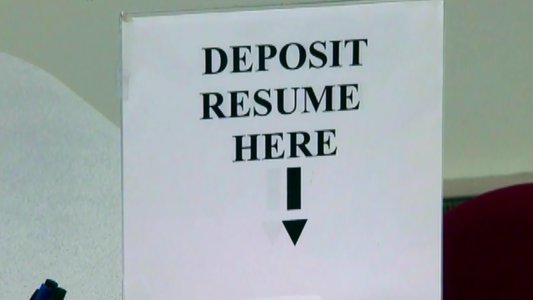
Full Episode: February 3, 2012
What do January's unemployment numbers tell us about the economy? Plus, Mitt Romney won the Florida primary, but his comments about the poor are making headlines. Also, new FEC disclosures shine light on Super PAC money. Joining Gwen: Karen Tumulty, Washington Post; John Harwood, CNBC and New York Times; Doyle McManus, Los Angeles Times; Jim Tankersley, National Journal.


Full Episode: February 17, 2012
As the GOP presidential primary race between Rick Santorum and Mitt Romney tightens, the panel previews the Arizona and Michigan primaries. Plus, President Barack Obama's proposed budget, a deal to extend payroll tax cuts, and tensions over Iran's nuclear program. Joining Gwen: Karen Tumulty, Washington Post; Jackie Calmes, New York Times; Susan Davis, USA Today; Martha Raddatz, ABC News.

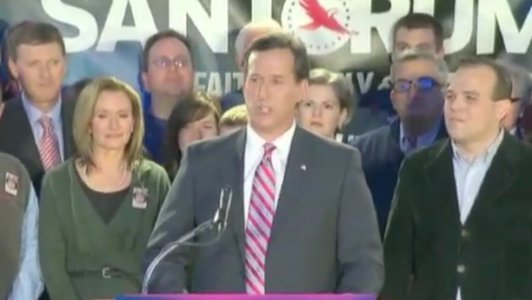
Full Episode: February 24, 2012
Rick Santorum is the main target in the GOP race as 13 states prepare to vote between now and Super Tuesday. Plus, international leaders meet in Tunisia to prevent more bloodshed in Syria. And unrest continues in Afghanistan after the burning of Qurans. Joining Gwen: Michael Duffy, TIME Magazine; Jeanne Cummings, Bloomberg News; Nancy Youssef, McClatchy; Yochi Dreazen, National Journal.

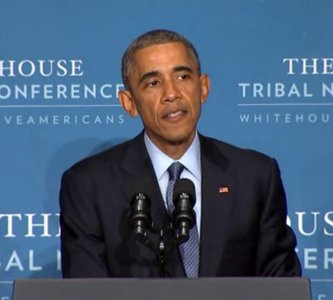
Full Episode: March 2, 2012
As we head into Super Tuesday, which GOP candidate has momentum and how will Tuesday's primaries change the race? Meanwhile, President Obama makes campaign-like speeches in Michigan and New York. Also, Senator Olympia Snow resigns, saying there is no longer bipartisanship in Congress. Joining Gwen: John Dickerson, Slate/CBS News; Gloria Borger, CNN; Charles Babington, Associated Press.


Full Episode: March 30, 2012
The Supreme Court heard three days of arguments on the 2010 Affordable Care Act. What were the key issues before the court? Plus, a mic catches a private comment between President Obama and Russian President Medvedev. Also, Mitt Romney's latest endorsements and the GOP race. Joining Gwen: Joan Biskupic, Reuters; Pete Williams, NBC News; Jeff Zeleny, New York Times; Julianna Goldman, Bloomberg News

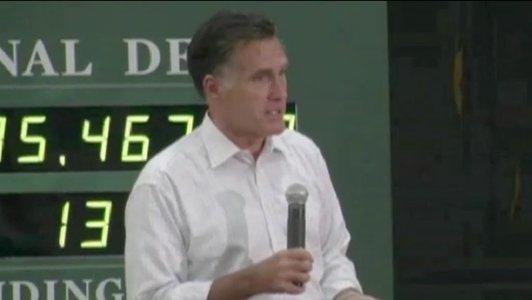
Full Episode: April 6, 2012
After three big wins Mitt Romney has scored more than half of the delegates needed for the GOP presidential nomination. Plus, new unemployment numbers shed light on the economy. Also, female voters, the President's Supreme Court remarks and more. Joining Gwen: John Dickerson, Slate Magazine/CBS News; Karen Tumulty, Washington Post; Jackie Calmes, New York Times; David Wessel, Wall Street Journal.

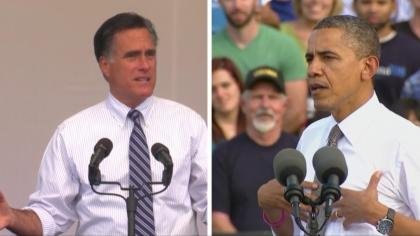
Full Episode: April 27, 2012
As the campaigns look ahead, Mitt Romney targets Barack Obama, but he is targeting youth voters. The Supreme Court hears arguments on Arizona immigration law. Also, a year after Osama bin Laden's death, balancing terrorism and civil liberties. Joining Gwen: John Dickerson, Slate Magazine/CBS News; Alexis Simendinger, RealClearPolitics; Pete Williams, NBC News; James Kitfield, National Journal.


Full Episode: May 4, 2012
The U.S. and China continue to negotiate over activist Chen Guangcheng's travel to America. Plus, President Obama visited Afghanistan on the one year anniversary of Osama bin Laden's death. Also, new unemployment numbers and the 2012 presidential race. Joining Gwen: Martha Raddatz, ABC News; Peter Baker, New York Times; David Wessel, Wall Street Journal; Charles Babington, Associated Press.


Full Episode: May 11, 2012
What's the political fallout of President Obama's support for same-sex marriage? Plus, longtime Senator Richard Lugar, R-Ind., lost his party's primary. What does that mean for moderate republicans and incumbents? Also, the double-agent al-Qaeda plotter. Joining Gwen: Major Garrett, National Journal; John Dickerson, Slate Magazine & CBS News; Susan Davis, USA Today; Pierre Thomas, ABC News.


Full Episode: June 1, 2012
What do disappointing job numbers mean for the already unemployed and the state of economic recovery? Mitt Romney wins enough delegates to make him the unofficial Republican nominee and finds himself in a dead heat with President Obama in three key swing states. Plus the latest on the crisis in Syria.

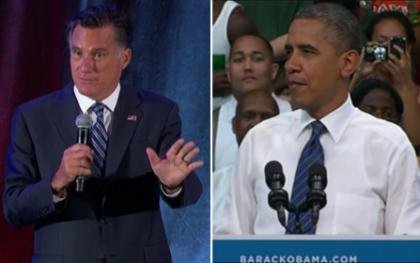
Full Episode: June 22, 2012
Mitt Romney and President Obama court Latino voters as immigration politics enters the spotlight. Plus, Obama invokes executive privilege as Attorney General Eric Holder faces a contempt of Congress charge. Also, what’s Europe’s economic future? This Week: Jeff Zeleny, New York Times; Laura Meckler, Wall Street Journal; Major Garrett, National Journal; Doyle McManus, Los Angeles Times.

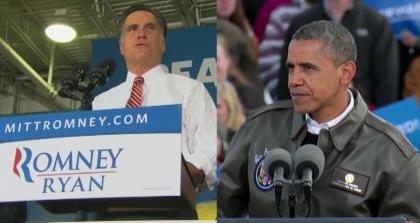
Full Episode: July 6, 2012
President Barack Obama campaigns in Ohio and Pennsylvania and accuses Romney of outsourcing jobs during his time at Bain Capital. Meanwhile, Mitt Romney says that the federal health care mandate is indeed a tax. Plus, new unemployment numbers. Joining Gwen: Dan Balz, The Washington Post; Jan Crawford, CBS News; Charles Babington, Associated Press; Amy Walter, ABC News.


Full Episode: July 13, 2012
This Week, President Barack Obama and Mitt Romney both campaigned in battleground states. Obama called for an extension of middle class tax cuts while Romney addressed the NAACP. Also, House Republicans voted to repeal the president's health care law. Joining Gwen: Michael Duffy, TIME Magazine; Lori Montgomery, The Washington Post; Alexis Simendinger, RealClearPolitics; Sam Youngman, Reuters.


Full Episode: July 20, 2012
A horrific mass shooting at a movie theatre near Denver, Colorado. The campaigns talk about tax history and economic policy as attack ads from both campaigns intensify. And the fighting in Syria spreads to Damascus as the rebels achieve new victories. Joining Gwen: Pierre Thomas, ABC News; Karen Tumulty, The Washington Post; Jeff Zeleny, The New York Times; Doyle McManus, Los Angeles Times.

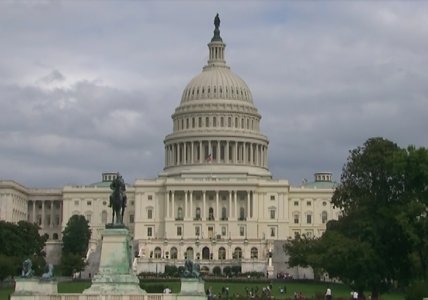
Full Episode: August 3, 2012
Mitt Romney and President Obama rally undecided voters in battleground states. The Tea Party scores a big victory in Texas with Senate nominee Ted Cruz. Plus July jobs numbers and Congress starts its summer recess with key legislation left undone. Joining Gwen: Amy Walter, ABC News; Karen Tumulty, The Washington Post; David Wessel, The Wall Street Journal; Susan Davis, USA Today.


Full Episode: August 10, 2012
New polls show that the presidential race is as close as ever. Mitt Romney and President Barack Obama campaign in key swing states as the campaigns and super PACs release more controversial advertisements. Also, when will Romney pick his running mate? Joining Gwen: Jeff Zeleny, The New York Times; Beth Reinhard, National Journal; John Harwood, CNBC and The New York Times.


Full Episode: August 17, 2012
Mitt Romney’s campaign received a jolt after announcing his running mate, Rep. Paul Ryan. Both campaigns came out swinging with new attacks ranging from policy to personal. Will Paul Ryan’s addition to the campaign change the direction of election? Joining Gwen: Jackie Calmes, The New York Times; Alexis Simendinger, RealClearPolitics; John Harris, POLITICO.


Full Episode: August 24, 2012
A Special Washington Week from St. Petersburg, Florida ahead of the Republican National Convention. How did the Mitt Romney campaign attempt to remain on-topic amidst the Todd Akin debacle? Why are the candidates sparring over Medicare again? Joining Gwen: Dan Balz, Washington Post; Beth Reinhard, National Journal; John Dickerson, Slate and CBS News; Amy Walter of ABC News.


Full Episode: August 31, 2012
Special Washington Week from Charlotte, North Carolina: Did Mitt Romney fulfill expectations at Republican National Convention? Plus what affect did Clint Eastwood's unscripted speech have? Also, we preview the Democratic National Convention. Joining Gwen: Jeff Zeleny, New York Times; Karen Tumulty, Washington Post; Alexis Simendinger, Real Clear Politics; John Hardwood of CNBC / New York Times.

© 1996 - 2026 WETA. All Rights Reserved.
PBS is a 501(c)(3) not-for-profit organization
